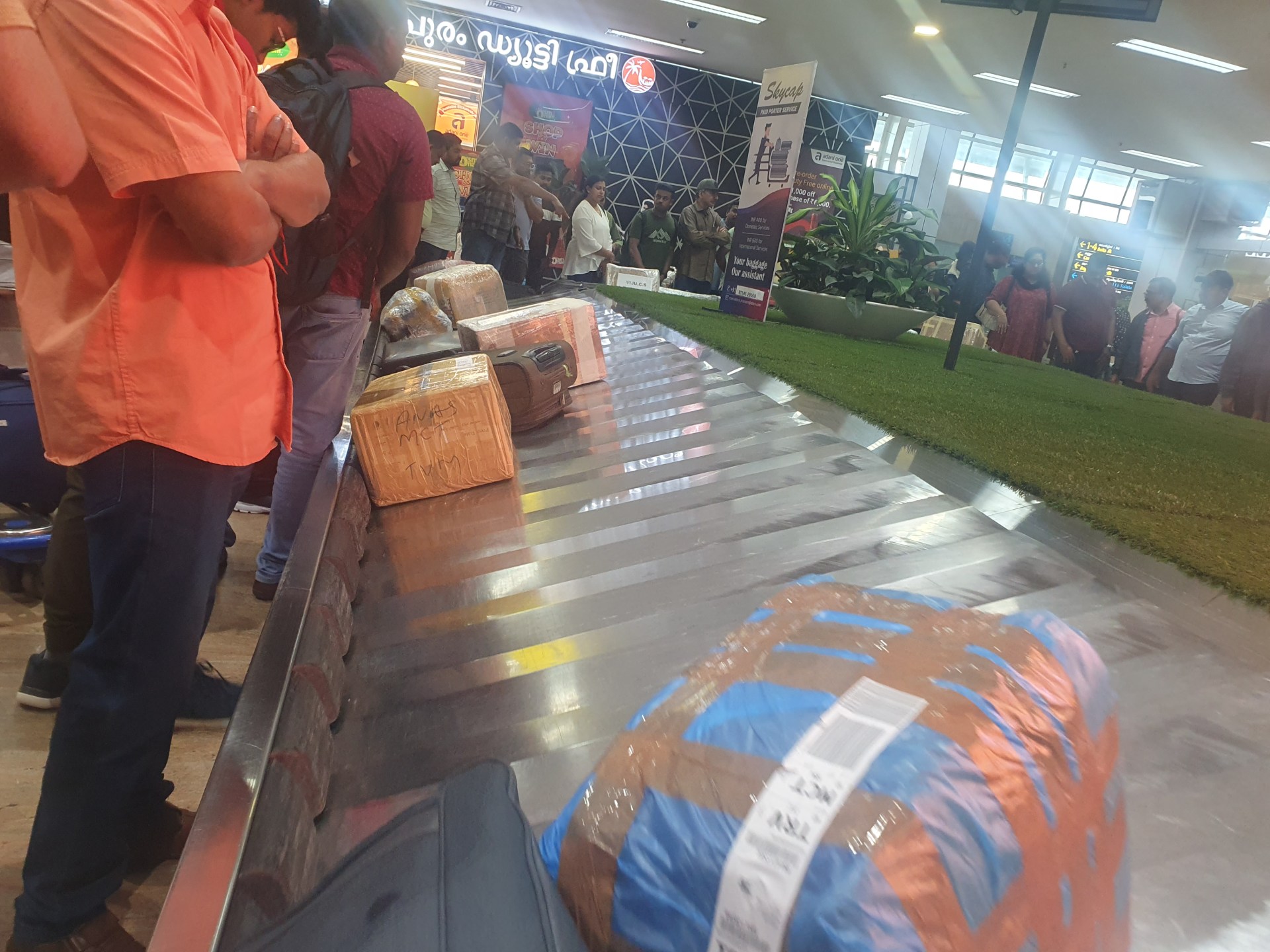Thiruvananthapuram, India - As soon as you enter, walk to the right, then a little forward. In the first or second aisle, you’ll see them immediately, prominently placed on the shelves: Tiger Balm and, next to it, Axe Oil — both from Singapore. And then, in the third or fourth aisle, Imperial Leather bath soap from Britain. In Lulu Hypermarkets across the Gulf, these coveted products – muscle-relieving ointment and a bath bar with a well-known fragrance – are always positioned the same so shoppers can easily find them. Often, these three products are the only items people have travelled to the store to buy. Indian-born businessman and billionaire MA Yusuff Ali is the chairman and managing director of LuLu Group International, which oversees 255 Lulus in 23 countries. The franchise has the tagline “The world comes to shop in Lulu,” but most consumers at his swanky Gulf stores are fellow South Asians – mainly low-paid migrant workers from his home state, Kerala, on India’s southern tip. Of the nine million Indians living in Gulf Cooperation Council countries, people from Kerala form the biggest chunk — by far. These workers tend to flock to Lulu just before they fly home on leave. Typically, they get 14 days of vacation annually. Sometimes this leave is saved up over two years so workers can spend a whole month at home. Stopping at Lulu before the journey back is a well-practised ritual, an event aimed at bringing joy to their loved ones, whom they’ve waited all year – or even two years – to see. And that joy comes in the form of balm, oil and soap. In this movie poster for Pathemari, a 2015 film that tells the hardships of a Keralite worker who migrated to Dubai on a pathemari (wooden boat) in the 1960s, South Indian film star Mammootty is shown with his character’s baggage at the airport [Facebook]
‘Huge money for people like me’ Migrant worker George Varghese has been driving cars for an Emirati family in Dubai for the past 28 years. His employer owns a limousine fleet service that counts the Bahraini royals; Russian President Vladimir Putin’s former wife, Lyudmila Aleksandrovna Ocheretnaya; Indian film star Shah Rukh Khan; and British-Indian millionaire Lakhsmi Mittal’s family among its clients. Varghese, a Keralite who speaks multiple languages, has driven some of these dignitaries around Dubai while earning 2,200 UAE dirham ($600) a month – a little more than South Asian construction workers. Workers will often spend 500 dirhams ($136) on shopping before flying home, which is “huge money for people like me”, Varghese says. A bar of Imperial Leather costs about 3 dirhams, a jar of Tiger Balm about 9 dirhams and Axe Oil is 10 dirhams. Recently, Varghese handled the repatriation of a paralysed Indian man. When he purchased the man’s airline ticket, Varghese made a stop at a Lulu, picking up two Tiger Balms, three Axe Oils, and two bars of Imperial Leather soap. “Old habits die hard,” he says. He packed the must-have items and a few chocolates in a brown carton and sent it to the man’s family as a gift. Varghese, like other migrant workers, doesn’t bathe with the expensive Imperial Leather soap, which was first produced in 1930 in London and claims to have a scent created in the 18th century. Instead, he uses Radhas, an ayurvedic Kerala soap, which is always kept on the bottom shelves of Lulu – you have to bend over to find it. He explains that the migrants often say, “We have never used Imperial Leather, but our families have.” Not only is it essential for workers to purchase the desired products before travelling home, but the items must also be packaged in a specific way,…

